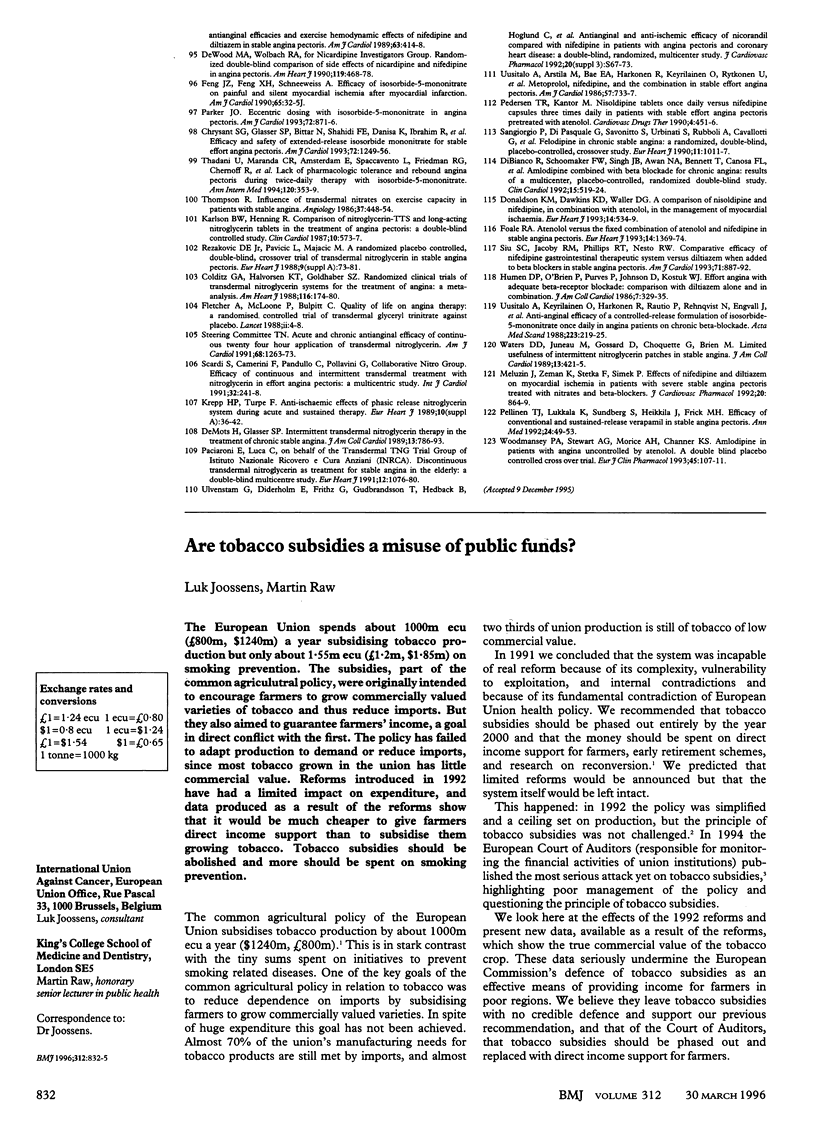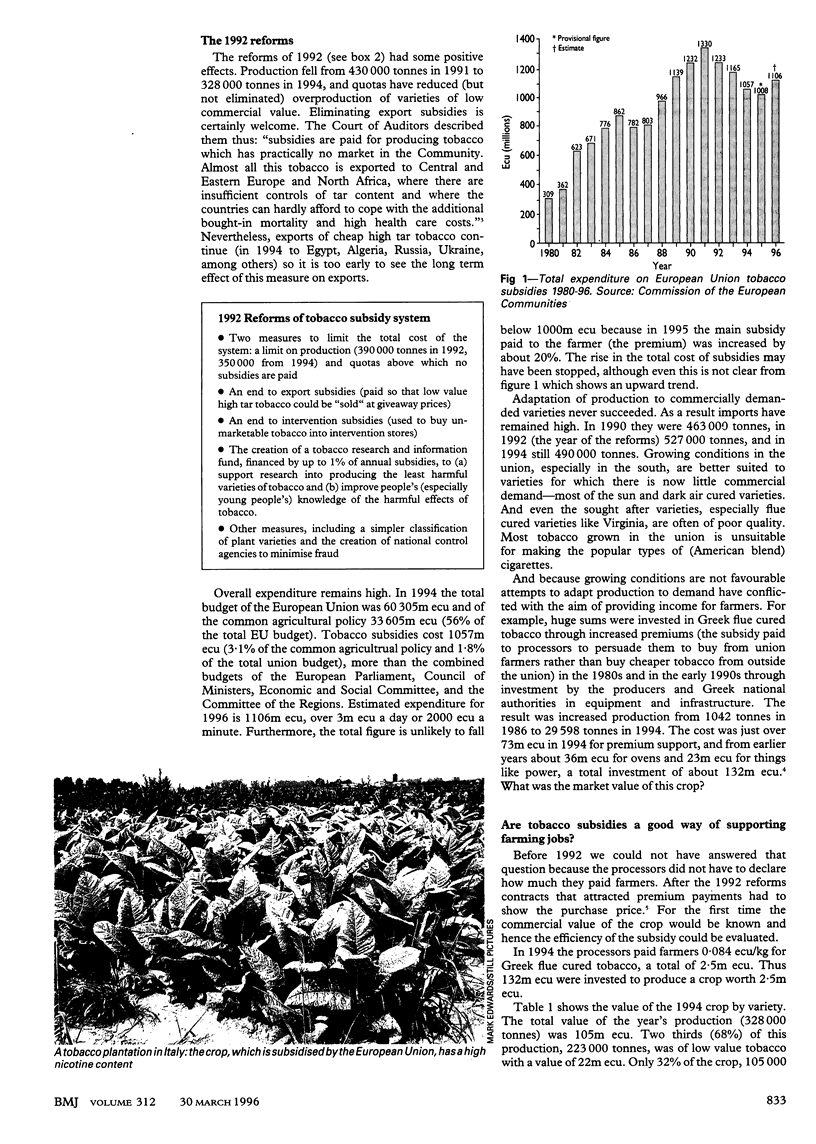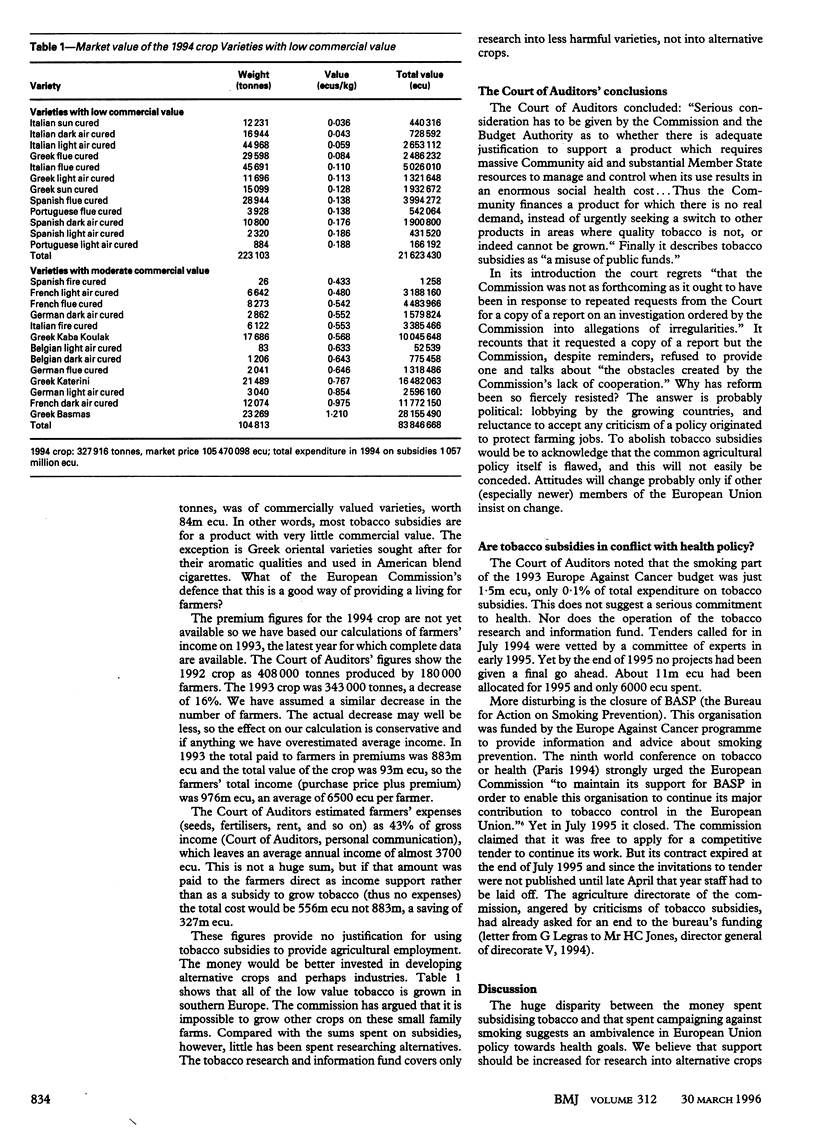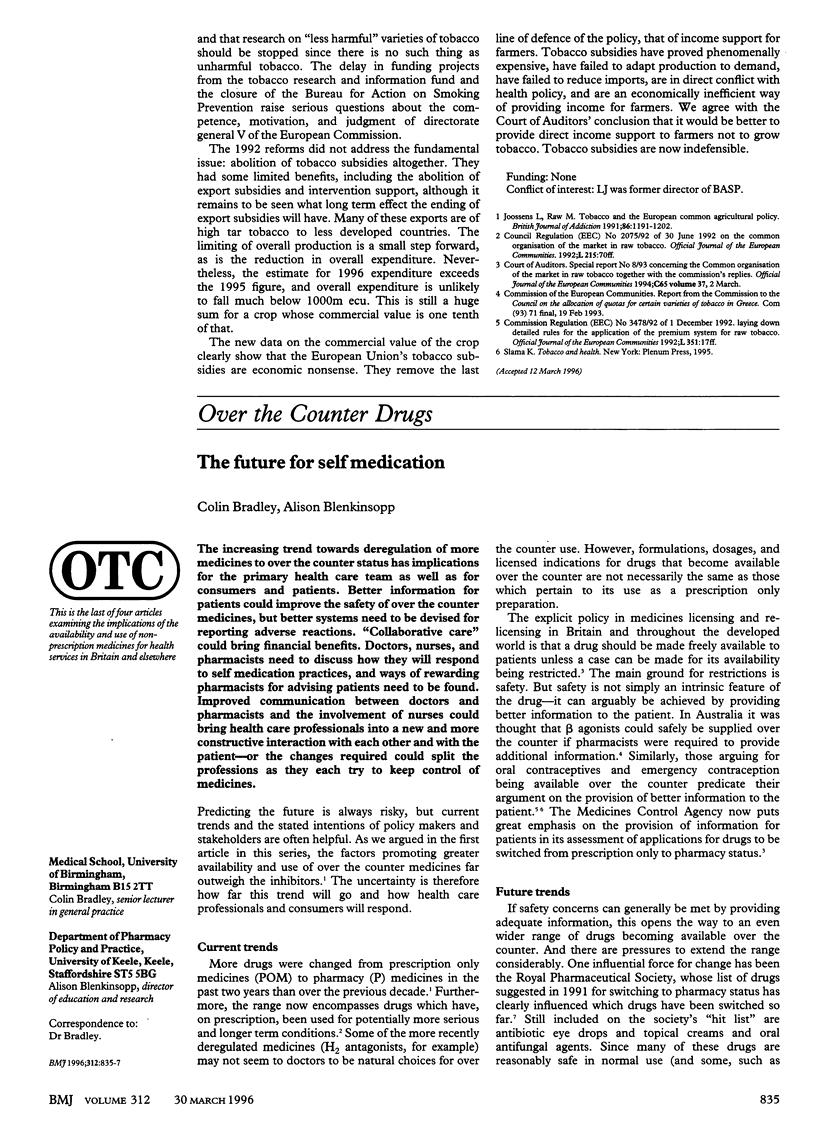Abstract
The European Union spends about 1000m ecu (800m pounds, $1240m) a year subsidizing tobacco production but only about 1.55m ecu (1.2m pounds, $1.85m) on smoking prevention. The subsidies, part of the common agricultural policy, were originally intended to encourage farmers to grow commercially valued varieties of tobacco and thus reduce imports. But they also aimed to guarantee farmers' income, a goal in direct conflict with the first. The policy has failed to adapt production to demand or reduce imports, since most tobacco grown in the union has little commercial value. Reforms introduced in 1992 have had limited impact on expenditure, and data produced as a result of the reforms show that it would be much cheaper to give farmers direct income support than to subsidize them growing tobacco. Tobacco subsidies should be abolished and more should be spent on smoking prevention.
Full text
PDF



Images in this article
Selected References
These references are in PubMed. This may not be the complete list of references from this article.
- Joossens L., Raw M. Tobacco and the European common agricultural policy. Br J Addict. 1991 Oct;86(10):1191–1202. doi: 10.1111/j.1360-0443.1991.tb01699.x. [DOI] [PubMed] [Google Scholar]



